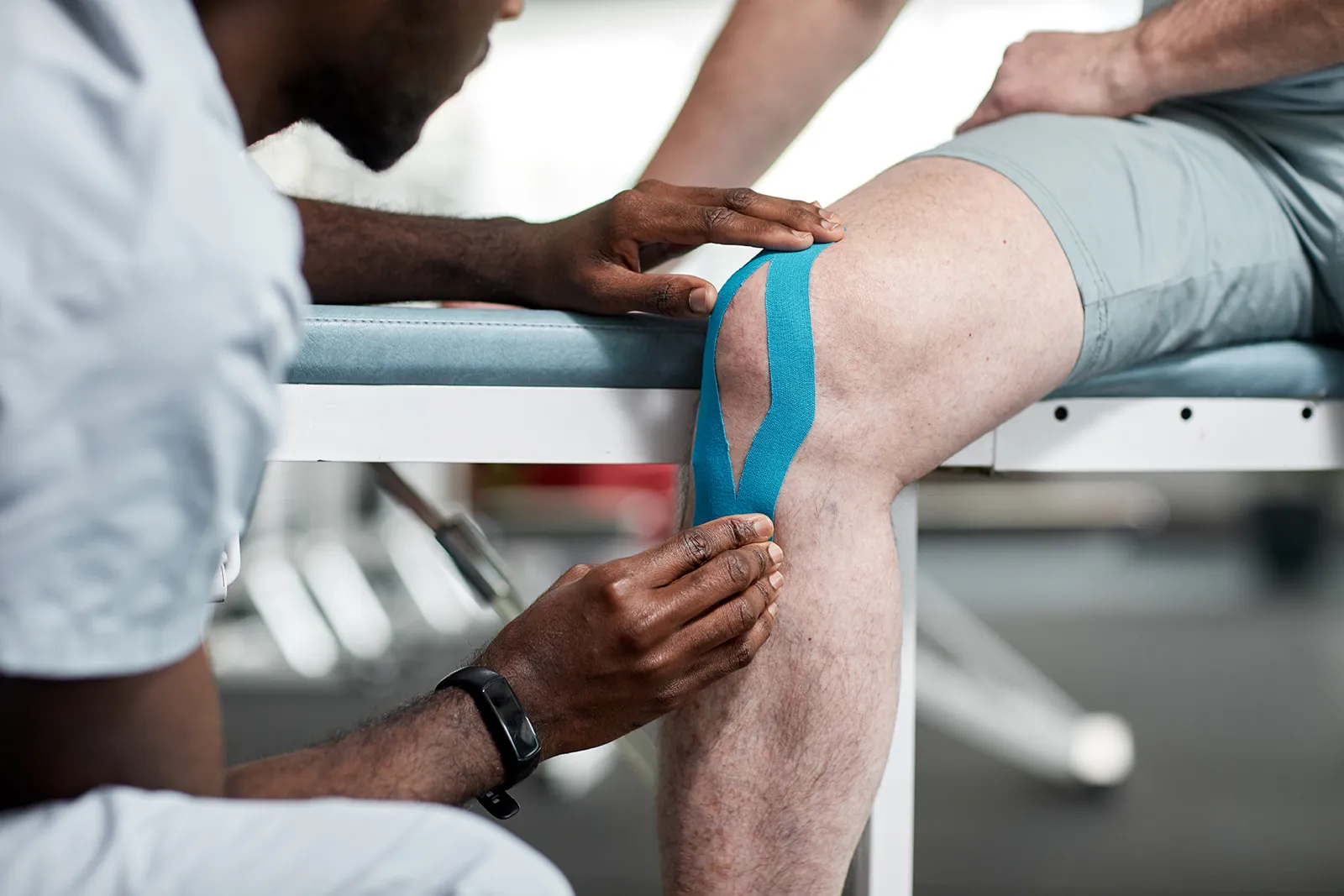What A-levels do you need for physiotherapy? Your Subject Roadmap 2026

December 9, 2025 | 2 months | By Career
What qualifications do you need to be a physiotherapist? Discover what you need to know
To become a physiotherapist, selecting the right A-level subjects is crucial as they lay the foundation for university entry and the skills needed in the profession. The most commonly required and recommended A-levels for aspiring physiotherapists include:
- Biology
- Psychology
- Chemistry
- Mathematics
- Physical Education
- Physics
- Sociology
These subjects help develop a strong understanding of the human body, physical health, and scientific principles that are essential for physiotherapy studies.
In this post, we’ll explore why these A-levels matter, which are often compulsory or preferred by universities, and how to choose the best combination to support your physiotherapy career goals.
what A Levels do you need for physiotherapy?

A Level requirements for physiotherapy in UK: Core and useful subjects
Biology
A-Level Biology is crucial for aspiring physiotherapists, providing a deep understanding of human anatomy, physiology, and cellular functions. This course covers essential topics such as genetics, neurobiology, and muscle physiology, which are foundational for diagnosing and treating physical ailments. Since you will need to study all these processes and functions in depth later at university, starting with this A-Level can serve as a great foundation.
Can you be a Physio without Biology?
While it is technically possible to become a Physiotherapist without a Biology A-Level, it is highly recommended. Biology provides essential knowledge for this career, and without this background, students may struggle to grasp complex physiological concepts crucial to physiotherapy practice.
Psychology
A-Level Psychology is valuable for physiotherapists as it covers human behavior, cognitive processes, and emotional responses. Understanding psychological principles helps physiotherapists address the mental and emotional aspects of physical rehabilitation, improving their capacity to support patients in the process.
This course fosters empathy and effective communication skills, essential for building strong patient-therapist relationships and encouraging patient compliance with treatment plans.
Is Psychology another option on your career list? Have a look at the A-levels needed to be a psychologist.
Chemistry
A-Level Chemistry provides foundational knowledge of biochemical processes relevant to Physiotherapy. This course covers topics such as organic chemistry, chemical bonding, and metabolism, helping students understand how various substances interact within the body. This knowledge is crucial for comprehending the effects of medications and treatments on patient health, particularly in managing pain and inflammation.
Can you do Physiotherapy without Chemistry?
Similar to Biology, Chemistry is not a must to enter a Physiotherapy degree, but it can be beneficial to understand the basics of what the career will bring in the future, so taking it is highly advisable.
Mathematics
A-Level Mathematics could also be very relevant for Physiotherapy students, particularly those interested in research and data analysis. This course covers statistics and probability, which are vital for designing studies and interpreting research findings. Mathematical skills also help in understanding biomechanics and the quantitative aspects of patient assessments, enhancing clinical decision-making.
Physical Education
Though related, Physical Education is not a must for becoming a physiotherapist. It can be beneficial to understand the efforts an athlete has to go through in each sport. Most students recommend taking this subject as an AS level, which will grant you the necessary knowledge without having to study so much.
Physics
A-Level Physics offers valuable insights into biomechanics and physical forces acting on the body. This course covers topics such as kinematics, dynamics, and energy transfer, which are relevant for analysing and improving patients' physical functions. Physics also aids in comprehending advanced therapeutic techniques and equipment used in Physiotherapy, thereby enhancing treatment effectiveness.
Do Physios need Physics?
Aside from Biology and Chemistry, Physics may be the most beneficial A-level for a physiotherapist, as it provides the basic knowledge to analyse how different forces affect body structure.
Sociology
A-Level Sociology examines the social contexts of health and illness, making it a useful subject for physiotherapists. This course explores how societal factors, cultural norms, and social interactions influence health behaviors and access to care. Understanding these social dynamics helps physiotherapists address barriers to treatment, promote health equity, and provide holistic care that considers patients' social environments.
You may want to learn what A-levels you should take for Medicine in case you are looking for other alternatives.
A Guaranteed Pass in Your Exams!
CloudLearn are the only UK Online Learning centre to guarantee a pass for our students.
View our A-Level courses
What subject is most important for a Physiotherapist?
The most important A-levels for Physiotherapy are science ones, as most universities require one or two of these at an A or B grade. Our top recommendations are Biology and Physics, given that these two have the biggest correlation with what you will learn later on in university. Additionally, we highly advise taking A-level Psychology, which will grant you the necessary knowledge to deal with patients.

What is the best subject combination for Physiotherapy?
Biology + Psychology + Physics
This is probably the most powerful combination for aspiring physiotherapists: Biology provides a solid foundation in human anatomy and physiology; Psychology equips you with the skills to manage and support patients; and Physics is crucial for comprehending how forces and mechanics affect the human body structure.
Biology + Psychology + Chemistry
Choosing Chemistry instead of Physics can provide insights into the chemical interactions that occur within the body. This knowledge is highly beneficial for a deeper understanding of physiology and related medical studies.
Biology + Psychology + Mathematics
Mathematics contributes to the equation by providing students with critical thinking skills and the necessary tools for research and statistical analysis. It is also essential for performing physics calculations both during university courses and in professional practice.
Biology + Psychology + Physical Education
As mentioned before, Physical Education can be incredibly useful for dealing with patients who have suffered from sports injuries or want to avoid pain during their training sessions. By specialising in this area, you will be better equipped to treat these patients effectively.
Do you know how much A-Levels cost? Book courses in bulk at CloudLearn to get special discounts!
Looking to Excel in Your A-Level Exams?
Get the A-Levels you need at CloudLearn!
View our A-Level courses
Which university is best for Physiotherapy (+ entry requirements)
Robert Gordon University
RGU requires students to possess a minimum of ABB, including two subjects from Biology, Chemistry, Maths, and Physics. English (or a written subject requiring the use of English) is required at AS Level grade B or above. Psychology could be a good alternative to English since it is an essay-based subject as well.
University of Brighton
The University of Brighton offers a place to students with a minimum of ABB to include Biology, Human Biology or PE. Candidates must also pass occupational health and Disclosure and Barring Service (DBS) checks and have a minimum of one week placements in a physiotherapy environment within a hospital.
University of Southampton
Only those students with AAB including one pure science subject (Biology, Chemistry, Physics) with a pass in the practical can get an offer.
University of Hertfordshire
The minimum requirements for a standard offer are two appropriate Science GCE A2 subjects at a minimum of 'A' and 'B' grades and a further 'B' grade in another GCE A2 subject.
University of Wolverhampton
To enter the University of Wolverhampton, students must have a minimum of BBB from three A Levels including a Science subject e.g. Biology, Physics, Chemistry, Physical Education, or Social Science.

Clearing courses entry requirements
Didn't meet the requirements by an inch? Don't worry! You might be eligible for clearing. This process gives students who are just behind the entry requirements the opportunity to enter other universities that still have open vacancies. If you are too far behind, you can always retake A-levels and aim for a higher score next time.
Start today with CloudLearn and kickstart your career in Physiotherapy!
Choosing the best A-Levels for Physiotherapy is essential for a successful career. With CloudLearn, you can tailor your studies to meet university requirements and build a strong foundation for your future. Our comprehensive courses in Biology, Psychology, Chemistry, and more will equip you with the knowledge and skills needed to excel.
Begin your journey with CloudLearn to take A-levels as a private candidate and study from home, at your own pace, and with the help of exclusive tutors. Enrol in our A Level courses today!
Frequently Asked Questions
Is Physiotherapy a difficult degree?
As with any other medicine-related degree, Physiotherapy involves memorising lots of concepts related to Biology, Physiology and, particularly in this case, Physics. However, in some universities, it has a big practical component, which makes it more dynamic and rewarding than simply studying from a book.
Can I be a Physiotherapist without a degree?
The most common path to becoming a physiotherapist involves studying at university, but you might also pursue an apprenticeship. In this case, you would need an employer to act as a mentor, hiring you as a part-time employee while teaching you the job. If you already have a degree in another field and want to switch to physiotherapy, you can take a postgraduate course, which often takes around 2 years to complete. After that, you will need to certify your knowledge and experience by registering with the HCPC.
How much does a physiotherapist earn UK?
According to Discover Uni, the basic yearly salary for an entry-level physiotherapist is around £25,000, but depending on specialisation, it can scale up to £45,000.
Is Physiotherapy a stressful job?
Physiotherapy can be quite frustrating in some cases, as therapy results can take time to have an effect, but it can also be very rewarding, as a correctly applied treatment can help your patients enjoy a much better quality of life.
How many UCAS points are needed for Physiotherapy?
The minimum UCAS tariff points vary depending on each university's entry requirements, but these often go from 120 points (equivalent to BBB A-level grades) to 136 (equivalent to AAB grades).
What A Level is best for Sports Physiotherapy?
For Sports Physiotherapy, as well as any other Physical Therapy specialisation, the main A-levels are Biology, Psychology and Physics, which will grant you the necessary tools and knowledge to treat your patients effectively while supporting them along their healing journey.
Can I do physiotherapy without Biology?
While Biology A-level is not always an absolute requirement, it is highly recommended for studying physiotherapy. Most universities prefer applicants with Biology due to its relevance to understanding human anatomy and physiological processes. Without it, you may find the course content more challenging. However, some universities may consider other qualifications, so it’s important to check specific entry requirements before applying.
Can you become a physiotherapist with a sports science degree?
Yes, you can become a physiotherapist with a sports science degree, but you would typically need to complete a postgraduate physiotherapy qualification. A sports science degree provides a solid foundation in human movement and exercise, which is highly relevant to physiotherapy. However, you’ll still need to meet the clinical and academic standards required for physiotherapy practice, often through additional study or training.